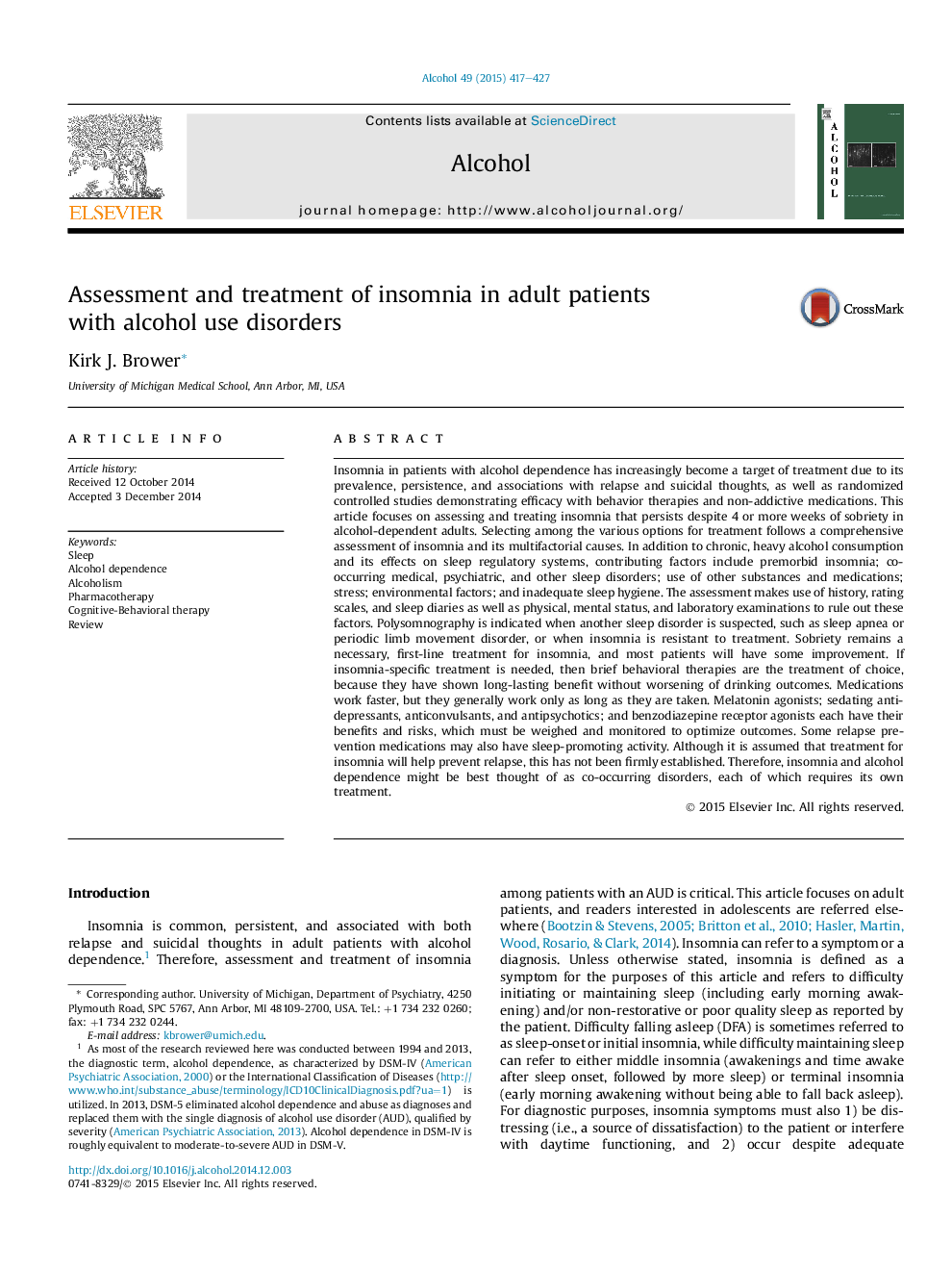| کد مقاله | کد نشریه | سال انتشار | مقاله انگلیسی | نسخه تمام متن |
|---|---|---|---|---|
| 1066850 | 948847 | 2015 | 11 صفحه PDF | دانلود رایگان |
• Insomnia is common, persistent, and linked to relapse and suicidal thoughts.
• Treatment targets all modifiable causes of insomnia, including drinking.
• Causes include substances, co-morbid disorders, stress, and poor sleep hygiene.
• Use polysomnography to rule out apnea and other sleep disorders if suspected.
• Insomnia-specific treatments include behavioral therapies and medications.
Insomnia in patients with alcohol dependence has increasingly become a target of treatment due to its prevalence, persistence, and associations with relapse and suicidal thoughts, as well as randomized controlled studies demonstrating efficacy with behavior therapies and non-addictive medications. This article focuses on assessing and treating insomnia that persists despite 4 or more weeks of sobriety in alcohol-dependent adults. Selecting among the various options for treatment follows a comprehensive assessment of insomnia and its multifactorial causes. In addition to chronic, heavy alcohol consumption and its effects on sleep regulatory systems, contributing factors include premorbid insomnia; co-occurring medical, psychiatric, and other sleep disorders; use of other substances and medications; stress; environmental factors; and inadequate sleep hygiene. The assessment makes use of history, rating scales, and sleep diaries as well as physical, mental status, and laboratory examinations to rule out these factors. Polysomnography is indicated when another sleep disorder is suspected, such as sleep apnea or periodic limb movement disorder, or when insomnia is resistant to treatment. Sobriety remains a necessary, first-line treatment for insomnia, and most patients will have some improvement. If insomnia-specific treatment is needed, then brief behavioral therapies are the treatment of choice, because they have shown long-lasting benefit without worsening of drinking outcomes. Medications work faster, but they generally work only as long as they are taken. Melatonin agonists; sedating antidepressants, anticonvulsants, and antipsychotics; and benzodiazepine receptor agonists each have their benefits and risks, which must be weighed and monitored to optimize outcomes. Some relapse prevention medications may also have sleep-promoting activity. Although it is assumed that treatment for insomnia will help prevent relapse, this has not been firmly established. Therefore, insomnia and alcohol dependence might be best thought of as co-occurring disorders, each of which requires its own treatment.
Journal: Alcohol - Volume 49, Issue 4, June 2015, Pages 417–427
